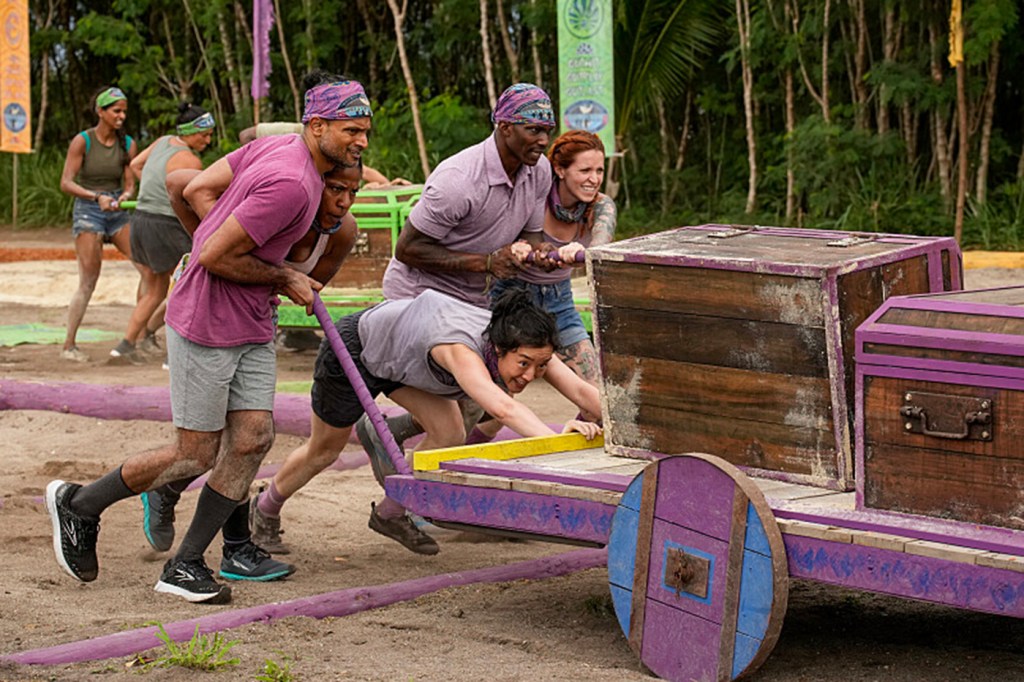‘Survivor’ will soon mark 25 years on TV. What accounts for all of its success?
A Northeastern University pop culture expert says “Survivor” is “rightly recognized as a pioneer in the reality TV genre,” a true “four-quadrant” show that has resonated across multiple generations.

The 46th season of “Survivor,” an international reality TV series featuring groups of ordinary people who are stranded on a tropical island for weeks, is now underway.
As the show nears its 25th year of programming in the U.S. — vaunted territory in the world of modern television — what accounts for all of its success?
Steve Granelli, associate professor of communication studies at Northeastern University, says “Survivor” is “rightly recognized as a pioneer in the reality TV genre,” a true “four-quadrant” show that has resonated across multiple generations.
That, and the castaway concept is comparatively less expensive to produce.
“There’s not a lot else out there to compare it to,” Granelli says.
The show features 16 or more players who are split into several “tribes” and are forced to live on a remote island together with minimal supplies for 26 days (it used to be 39 days before COVID-19 quarantine protocols prompted a change). The teams compete in obstacle-course-like challenges that offer various rewards, with the losing team being forced to vote someone out of their tribe at the conclusion of the event — during an evening “tribal council.”

As the tribes’ numbers whittle down, the groups merge and compete in “individual” challenges for those same rewards — often “immunity” from being voted out of the show. The last person standing wins $1 million.
Of course, reality TV, with its staged drama and recycled tropes, doesn’t have a particularly stellar reputation compared to its scripted counterparts, Granelli says. But “Survivor” manages to avoid a lot of the criticism hurled at the genre by tapping into directly the most compelling aspects of human nature, depicting real relationships and moments that result when people are forced to work together to overcome difficult circumstances — ultimately, for individual reward.
Featured Posts
Fans of the show have said that, at its core, the show is about trust and relationships; the difficulty of balancing the needs of the group against the needs of the individual; and — perhaps above all — persuasion (at the conclusion of the season, the final three contestants each have to persuade a jury of their peers that they deserve the $1 million).
“It’s character-driven, the storylines have to constantly evolve, and while a lot of people are watching week to week, there aren’t a whole lot of new viewers that come in at any time,” he says. “There’s just this very steady, constant stream of hardcore fans who want to watch.”
As television viewership in general has declined over the years, ratings for “Survivor” have largely weathered the storm, finding success with younger audiences. Having first aired in 2000, the series helped inaugurate an era of reality TV, and has managed to remain a fan favorite among U.S. audiences.
The reason, Granelli says, has to do with the generational appeal the show has achieved. Even Northeastern has its own “Survivor” club, which is currently accepting applications for its 14th season.
“The people who grew up being fans now have the opportunity to be on the show,” Granelli says. “Now think about how rare that really is.”
Whereas many television shows build on plots and storylines across seasons, Granelli says that “Survivor” begins each season with a clean slate, which helps it find new viewers.
“It’s only episodic within the context of a season, so the show can accumulate new viewers each new season,” he says. “But for the hardcores, it maintains them by updating the format of the show, adding wrinkles, adding little differences. They’re very strategic in that they don’t change too much to alienate old viewers, and keep the core tenets to attract new season viewers.”
The show’s concept has inspired many imitations, which Granelli says has only helped further the brand.
“We’ve seen so many offshoots of ‘Survivor’ that are essentially using the same model,” Granelli says. “And maybe these other offshoots think they’re doing it better, but they don’t have the staying power that ‘Survivor’ does, which then gets to steal from those other concepts to make its own concept that much more attractive.”





